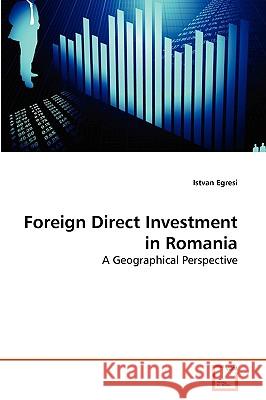Foreign Direct Investment in Romania » książka
Foreign Direct Investment in Romania
ISBN-13: 9783639273670 / Angielski / Miękka / 2010 / 316 str.
The broad context for this book is the globalization of economic activity and the deepening integration of national economies via transnational flows of capital, labor and resources. While between 1945 and 1973 growth in international trade was the main factor driving the world economy, after 1980 this role was assumed by the growth in foreign direct investment (FDI). In Central and Eastern Europe the relevance of FDI in globalization studies is particularly significant given its role in the transition from state socialism to market economy and the integration of the region into the global economy. While similar research has been done in other Central and Eastern European countries, the dynamics and patterns of FDI distribution in Romania have not yet been adequately documented and explained by geographers. This study uses several Western-based FDI theories to investigate the dynamics of FDI in Romania by examining the principal determinants shaping the geography of FDI and assessing the effects of FDI on national and local economies.











